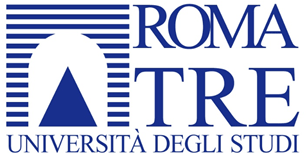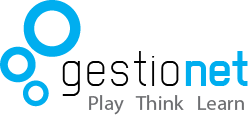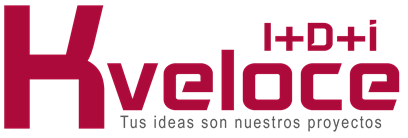Cooperation partnership
Our project is led by the University of Burgos from a multidisciplinary, interdisciplinary and international cooperation partnership.
Universidad de Burgos
 The University of Burgos is leading the eEarlyCare-T project as the coordinating entity. This University was founded in 1994 and assumed its role in local and regional economic and wider scientific development, responding to market demands and developing extensive research networks. It has an average of 8,000 students and offers 28 bachelor's degrees, 27 master's degrees and 13 PhD programmes. In addition, the UBU offers virtual degrees (5 bachelor's degrees and 7 master's degrees). The UBU is also committed to personalised, quality learning, focusing on the promotion of teaching innovation and personalised attention to students. To this end, the University of Burgos has a Quality Assessment Department that works with the regional (ACSUCYL), national (ANECA) and European (ENQUA) quality agencies to ensure compliance with quality standards in the degree programmes. Furthermore, the University of Burgos is committed to internalisation and bilingual teaching in English, as well as the use of new technologies applied to teaching, for which it has a training and support centre for teaching staff and students, UBUCEV. In short, UBU is a young institution dedicated to continuous improvement, transparency and accountability to society. Furthermore, it offers a modern education that is continuously updated, both formal and non-formal, with the use of the most advanced technology. Likewise, the University of Burgos is placed in the most prestigious rankings.
The University of Burgos is leading the eEarlyCare-T project as the coordinating entity. This University was founded in 1994 and assumed its role in local and regional economic and wider scientific development, responding to market demands and developing extensive research networks. It has an average of 8,000 students and offers 28 bachelor's degrees, 27 master's degrees and 13 PhD programmes. In addition, the UBU offers virtual degrees (5 bachelor's degrees and 7 master's degrees). The UBU is also committed to personalised, quality learning, focusing on the promotion of teaching innovation and personalised attention to students. To this end, the University of Burgos has a Quality Assessment Department that works with the regional (ACSUCYL), national (ANECA) and European (ENQUA) quality agencies to ensure compliance with quality standards in the degree programmes. Furthermore, the University of Burgos is committed to internalisation and bilingual teaching in English, as well as the use of new technologies applied to teaching, for which it has a training and support centre for teaching staff and students, UBUCEV. In short, UBU is a young institution dedicated to continuous improvement, transparency and accountability to society. Furthermore, it offers a modern education that is continuously updated, both formal and non-formal, with the use of the most advanced technology. Likewise, the University of Burgos is placed in the most prestigious rankings.
The researchers from the University of Burgos who collaborate in the project have a multi- and interdisciplinary profile, as evidenced by the fact that they belong to four research groups:
Advanced Data Mining Research and Bioinformatics Learning - ADMIRABLE-, its members are experts in the research of Data Mining techniques applied to different fields of knowledge.
Data Analysis Techniques Applied in Health Environments Sciences - DATAHES-, its members are experts in functional learning research and in the application of data mining techniques applied to the fields of health and education (children, youth and adults).
Geographical Studies and Territorial Analysis - GEOTER-, its members are experts in geographical analysis of the urban and rural environment as well as its evolution and historical transformation.
All groups have extensive research experience with numerous results in research, knowledge transfer and innovation.
Università Degli Studi Roma Tre

Roma Tre University has gradually but steadily manifested its particular profile as a dynamic and efficient seat of learning, offering a wide range of undergraduate and postgraduate courses (about 70 undergraduate courses, 80 postgraduate courses and 22 PhD courses), focusing on the quality of teaching and the insertion of its students in the labour market. This has led, step by step, to the successful recognition of Roma Tre at international level. The University is a member of: - UNICA Network (Universities of European Capital Cities); - UNISCAPE (European Network of Universities for the implementation of the European Landscape Convention); - EUA (European University Association). Since its constitution, Roma Tre has attached great importance to international cooperation, and has actively participated in European Union exchange programmes. In particular, Roma Tre has participated in the Erasmus programme since 1993/1994. In the academic year 2002/2003, Roma Tre received the Erasmus University Charter (EUC), thus obtaining the right to participate in the Erasmus Programme. Roma Tre participates, either as coordinator or partner, in about 80 international research projects. All Departments are equipped with computer laboratories and most of the University is a free WI-FI zone. Piazza Telematica is a computer centre with 200 multimedia workstations, designed to function as a University Internet Point; connected to all laboratories, it is an essential tool to face the new challenges of research and distance learning. In addition to these computer facilities, students have at their disposal efficient libraries and sports facilities. Each Department has a set of laboratories equipped with the relevant scientific equipment and benefits from its own autonomy in subject planning and management. Each Department has staff dedicated to international projects who are responsible for both administrative tasks (such as: definition of researchers' work contracts within the projects, travel expenses, financial reporting, support to audit procedures and accountability rules, etc.) and support to the R&D projects (such as support to scientists in the implementation of the projects, report writing, checking the timeliness of activities, etc.). The staff of the departments is coordinated and supported by the European Project Office, whose managers are trained in the overall management of the project cycle, providing appropriate coaching to the researchers.
Gestionet Multimedia S.L.

Gestionet Digital Solutions is a technology company that has been in the market for over 20 years, whose mission is to transmit values, content and work on competencies and skills through digital solutions based on gaming methodologies. To this end, Gestionet has been developing and implementing digital educational tools in classrooms to transmit values through video games and business games, such as entrepreneurship, environmental and sustainability values, innovation, etc. Gestionet's clients include public entities in favour of entrepreneurship, universities, business schools, colleges, training centres and Human Resources departments of large corporations in Spain and Latin America, such as Cemex, EY, BBVA, Banco Santander, Unilever, Avianca, Iberdrola, Securitas Direct, BBVA Colombia, Banco de Crédito del Perú, Endesa, etc. To do this, Gestionet has a large team of multidisciplinary professionals with digital competencies and skills with extensive experience to generate immersive environments through gamification to enhance the teaching-learning process. One of the keys of Gestionet during these 20 years is its clear innovative vocation to be able to provide added value to its customers, as it has tools within a wide catalogue to work skills and abilities through educational video games in a learning framework. The video games developed have the certification seal of the public entities of the Government of the Basque Country. Every year, Gestionet develops, within its R&D&I area, 6 digital educational solutions as well as tools to enhance competences and skills. Likewise, in recent years it has been specialising in the measurement of these competencies through an arduous process of contrasted and reliable science.
Kveloce I+D+i

Senior Europe (Kveloce I+D+i) is an SME specialised in the development, execution and exploitation of R&D&I projects and their financing, with a track record of more than 10 years. The company is composed of a team of 13 women with different and complementary profiles, distributed in three Spanish regions: Valencia (eastern region), Asturias (northern region) and Madrid (central region). Kveloce's main field of action is the area of health and social innovation, in particular that of innovation initiatives launched to respond to the main global challenges in education, inclusion, well-being and human behaviour. Similarly, Kveloce promotes new business models, circular economy and green behaviours using different methodologies and capacity building programmes. These include participatory processes, concretisation and new governance models, all using user-friendly ICT solutions. Similarly, Kveloce has extensive experience in training and capacity building activities aimed at the quadruple helix (public administration society/citizens, business sector and research institutions), developing its own resources, with numerous specific courses and seminars, as well as e-learning platforms. In particular, Kveloce has provided training for SMEs and Research and Education Centres, including VET centres, but also Business Confederations and Chambers of Commerce all over Spain (e.g. Alicante, Valencia, Navarra and Cantabria, among others). In addition, the company has developed ICT solutions for training and education, including online courses, virtual learning environments (VLE) and Apps. Some examples of solutions developed by the company within innovation projects are the NOPUNISH platform for the JUSTICE programme, the SAVE training modules in the framework of the DAPHNE programme or the BestByDoing VET in the framework of the Erasmus+ programme, to mention a few. In terms of science communication and dissemination of international R&D projects, Kveloce brings together a multidisciplinary team with a proven academic background and professional experience in science communication, citizen engagement, ICT platform development and even graphic design. Our staff is currently involved in more than 5 EU-funded projects supporting and executing the strategic approach for dissemination and communication activities and carrying out the implementation of tactics and plans, some of them funded by the H2020 programme.
Sveuciliste U Rijeci

The Faculty of Medicine at the University of Rijeka is a public scientific training institution, whose mission is to train students of medicine, dentistry and health engineering, as well as practising professionals with the aim of acquiring the knowledge and skills necessary to prevent diseases, maintain and improve health, as well as health care and rehabilitation of patients. The educational process is closely related to scientific research in the field of biomedicine and healthcare, but also in interdisciplinary scientific areas, the results of which are necessarily integrated into the educational process, in order to achieve a permanent and sustainable development of society. To this end, the Faculty aims to connect with leading local and international institutions in the fields of health, higher education and science. In the scientific-research field, the Faculty is also a scientific centre for biomedical and interdisciplinary research in accordance with the European concept of "intelligent specialisations", increasingly oriented towards applied and applicable science, as well as the starting point for the introduction of modern scientific discoveries into everyday practice. In addition, there are two departments operating at the Teaching Institute of Public Health, which have been active in the promotion and protection of health in Rijeka since 1900. These are the Department of Social Medicine and Epidemiology and the Department of Health Ecology. The Institute of Public Health has a long tradition of international cooperation in projects related to this field. Some of the main research work focuses on health, health education and risk behaviour prevention, risk detection and early intervention, advocacy for health promotion, capacity building and community participation. The Institute's efforts target professionals working in health settings (health professionals, education professionals, NGOs, public administration), individuals, families and/or organisations (nursery schools and health organisations).


